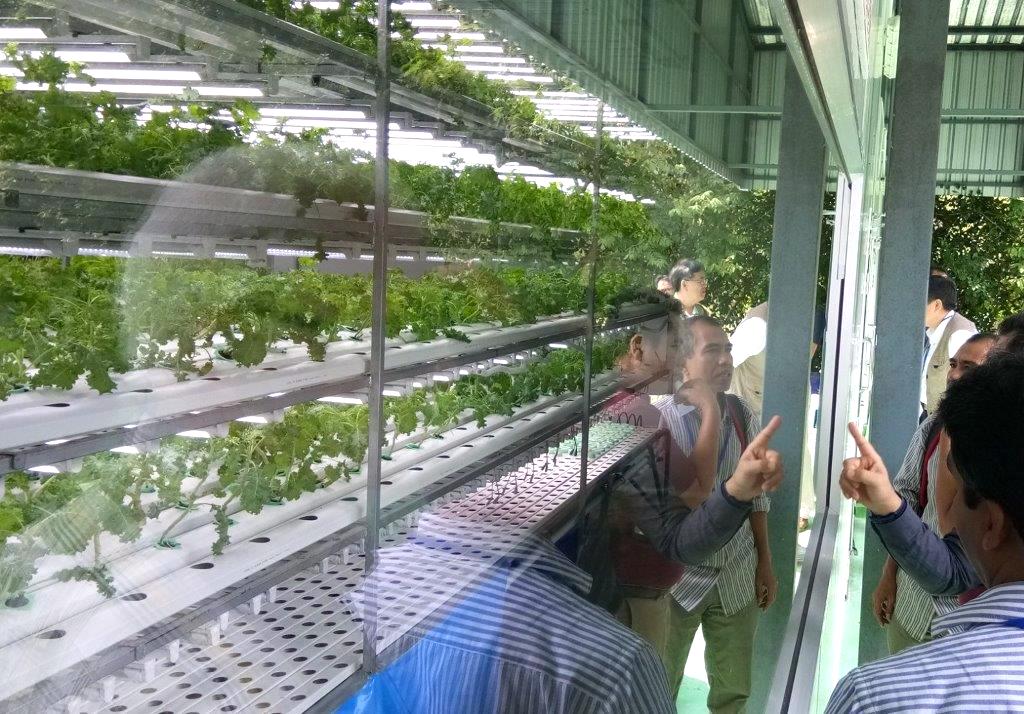
Select Page

Smart agriculture/smart farming (SA/SF), two terms used interchangeably, makes operations easier and more convenient, especially for the youth, elderly, and women. SA minimizes natural resource degradation and the carbon footprints of farming while addressing extreme weather, climate change, resource degradation, pest control, and other threats to food security. Smart technology gives rural farmers access to the latest information on agrifood markets, enhancing their profitability. The adoption of SA/SF can therefore contribute to overall sustainable rural development.
The Asian Productivity Organization’s (APO’s) recently launched Agricultural Transformation Framework (ATF) takes member countries’ different stages of SA applications into account. The adoption of SA/SF requires addressing issues of Internet connectivity in rural areas, linking ground-based sensors with the cloud, development of more affordable devices and sensors, and policy support for small farmers. To expand understanding of SA/SF, examine successful SF models, and explore opportunities for ATF adoption by member countries, the APO in partnership with the Thailand Productivity Institute (FTPI) organized a workshop on Smart Farming Models, 4–8 November in Bangkok. Twenty-two participants from 14 countries as well as three resource persons from the ROC, Japan, and the Philippines attended.
During the inaugural session, FTPI Executive Director Dr. Phanit Laosirirat’s remarks highlighted the role of SF in the food sector in Thailand. He cited successful examples of SA practices in the country such as a vineyard in Nakhon Ratchasima province which had created a microclimate monitoring system, and an orchid farm where a young entrepreneur had invented a moisture control system to maximize the water supply, which could be modified for growing other plants. Thailand’s Board of Investment support scheme to assist farmer-entrepreneurs in launching new business models in the agriculture sector was also outlined.
Award-winning Wangree Health Factory Company Ltd., a plant factory in Nakornnayok province, opened its doors to workshop participants, where they observed its vertical farming system for the year-round production of high-quality vegetables in an environment where light, temperature, humidity, carbon dioxide concentration, and nutrients are controlled and monitoring is carried out via mobile phones. Wangree’s process is conducive to economies of scale in order to control cost, quantity, and quality against the required harvest time.
After that visit, part of the group exercise session involved participants’ analysis of the strengths and challenges in Wangree’s operations and how farmers’/producers’ groups or entrepreneurs could set up similar plant factories in their countries. The major group task was examining the APO ATF smart technology adoption readiness indicators and then developing roadmaps for the design, implementation, and monitoring of a sample technology from a specific national perspective.
The participants’ evaluations of the workshop showed high levels of appreciation for the practical perspectives offered on SA/SF. For example, in spite of the different types of topography in APO member countries, Dr. Hari Sharma Neupane of Nepal found that the technical aspects presented had motivated him to adapt smart traceability systems to his national context. Resource person Dr. Carolyn Marie Florey of the International Rice Research Institute described her first APO assignment as “a remarkable experience,” singled out the “good communication from the beginning and throughout the event,” and was interested in joining future APO projects. Professor Dr. Sakae Shibusawa, the resource person from Japan, particularly enjoyed the interactions and discussions with participants from differing backgrounds in agriculture.